The Guitar Magazine
The Prophet Margin
After years on the margins of rock’n'roll stardom, Chuck Prophet just might have made the record to break him in the mainstream. Michael Leonard quizes the contrary Californian on cheap guitars, sacking bands and, erm, Frank Sinatra’s trem technique ...
‘If someone tells me to breathe. I’ll hold my breath. If everyone else goes left, I’ll go right ...’ even if there were a manual on being a rock’n'roll star, Chuck Prophet would not read it.
Over the space of ten years and 11 albums, Prophet has made good enough music to embarrass many of his peers yet he remains permanently on the bench in the mainstream league. Maybe as he suggests, he spurns his chances by refusing to play by the rules; maybe the talent scouts have lost their touch. Typically, Prophet doesn’t think that should stop him getting in the team.
‘I do care about record sales, y’know, and this “beautiful loser” image that I have offends me a bit to tell you the truth, I don’t slack with what I’m doing, I’m really trying to make records that hold up against the albums that I like, I want to sell, but doing something genuine, first rate and honest doesn’t really equate with sales. I don’t know if I’m happy with many of my records though. Playing live is where you get to kick the songs around. A record’s just a fuckin’ record.’
Therein, prehaps, lies the rub. Throughout his tenure as one half of Green On Red (with Dan Stuart) and as a three album-strong solo artist, the best place to see Chuck Prophet has alweays been the live stage. Green On Red seemed forever at war with themselves but were always capable of delivering the odd sucker-punch live show. Their albums - a stew of diseased country blues, raw R&B and drunken, after-hours ballads - were hit and miss in the extreme. ‘Genuine and honest’ they always were, but first rate? Even Prophet has quipped that the only thing he learned in Green On Red was ‘how to drink lying down and sleep sitting up’. 1989’s Here Come The Snakes, recorded with Stones and Cooder collaborator Jim Dickinson, stands out even now and even nudged GOR starwards; but then, despite the consecutive guiding hands of Glyn Johns (This Time Around) and Al Kooper (Scapegoats) they blew it. In 1992, Green On Red went on permanent strike.
However, all is not lost. Feast Of Hearts, the follow-up to ‘93’s Balinese Dancer, is Chuck Prophet’s second excellent solo album in three years: the boy’s starting to show a good run of form…
Feast Of Hearts was recorded in California with Los Lobos producer Steve Berlin providing some guidance and, notably, Cracker rhythm section Michael Urbano and Davey Gallagher providing some backbone.
‘I’d met Michael before,’ explains Prophet of his hook-up with ascendent alternative rockers. ‘I have this method of working where I don’t really do demos, I just get my song notebook, go and sit with three people or so in a circle and just start throwing songs out. Michael was there one time, had a pretty good feel and he recommended Davey for bass. It was cool ‘cos I usually go for the regular suspects, the people I’ve used before. You get familiarity that way and people come to understand all my quirks so I don’t have to pass out the manual to explain myself too often… but when it gets too comfortable it doesn’t have that conversational thing you get from people discovering each other.
‘Unfortunately, making records usually ends in grief. When you make records you have this grandiose vision and little by little you let things go. Tom Waits describes it as that fairground game where you have the two levers and the mechanical claw - you’re reaching for the gold watch and you end up pulling the plastic spider ring. Making a record’s just like that - you always end up with something to the left or the right. And it’s a quite intimate thinig and my philosophy is to keep it like a blind date to keep it fresh. Every time, you should look out for some fresh meat, heh heh!’ ‘Discovery’ is another Prophet principle. Whilst his music certainly isn’t iconoclastic, he’ll happily break up bands and start again at the first hint of a rut.
‘A great sense of phrasing is a major part of musical talent. I’d like to put a Strat with a whammy bar in Frank Sinatra’s lap and see how he jams. I reckon Frank’d he pretty cool!
‘Green On Red had some pretty dysfunctional bands,’ he admits (without dwelling on their Spinal Tap-esque turnover of drummers), ‘but that was just our way of keeping ourselves interested. It’s the same thing with me. If it was going real smooth with Green On Red it’d always get shaken up, either by other people or half the time by us. After a year or so with the same band we couldn’t resist the temptation to bring in strangers and fuck around with the songs. I guess I’m the same. I would like to put together a full-time band but uhh… it’s a little hard to find a band these days that’s untouched by all the crazy stuff. I’d ideally like to have a dysfunctional outfit like Crazy Horse or somethin’- it’s harder to do that these days.
‘But playing live with different people and keeping things fresh is what this game’s all about. I mean, I didn’t get into music to play by myself or plan a “career”, I got into into it ‘cos it’s a great way of communicating. It’s like a secret language! - no-one says anything, but you put your fingers here, you put your fingers there, and suddenly you’re communicating with this big noise. It’s a weird thing - sometimes on stage I feel like there’s something going on that’s beyond music, but I don’t think everyone realises or can hear that…’
Prophet’s approach to his muse couldn’t be much less academic, and he’ll spend studio tinie not in searh of the perfect take but of the Happy accidents, what Keith Richards calls ‘the beautiful fuck-ups’. He has a habit of referring to Green On Red as idiot savants, and he loves Beck because ‘he’s kinda like a musical dyslexic - everything’s there but it’s in this weird code, y’know? He looks in all the nooks and crannies of a song, and he takes a very slanted view. Beck’s just awesome.
‘Originally, I took a lot of inspiration from the punk scene in San Francisco, even though - or perhaps because - I couldn’t really play. There were just lots of creative, nutty people going out there and doing things. You’d just sit around with people, write some songs, show up at some place and borrow the equipment and make some noise. It wasn’t industry-driven, it was subversive. That’s what inspired me to write songs. I feel sorry for people today who just don’t have that. I don’t know if that exists in music anymore. Maybe the stage or drama is more like that but, of course, none of those people can get arrested. There’s probably some great work goin’ on out there but you’re going to have to read a whole lot of magazines to know about it. Rock’n'roll is easier to digest; people love reading about it for some reason and you can learn about the “proper” way to do things before you’ve even started. These days, people are fuckin’ process freaks - they love the documentary on the making of the movie more than the movie itself.’
Although Feast Of Hearts’ carries further evidence of Prophet’s stellar Tele twanging, it hoards even more impressive glimpses of a talent completely underutilised in Green On Red - his fast maturing voice. A resonant, tobacco-stained drawl, it’s been described as ‘Tom Waits without the cartoon element or Robbie Robertson if he could carry a tune’. Perhaps surprisingly given his geetar prowess, Prophet claims to be a fan of singers first and foremost.
‘To be honest, I figure I might have actually played another instrument than guitar - piano, drums, anything. But it’s a little late now. But most of my favoufite singers have, a great sense of phrasing which I think is a major part of musical talent, and if they’d picked up a guitar it’d be pretty interesting too. I I love the way Tom Waits sings and plays piano and guitar. And Keith Richards is a great singer, I love him! I’d like to put a Strat. with a whammy bar in Frank Sinatra’s lap and see how he jams. I reckon Frank’d be pretty cool! Yeah…’
It follows that Chuck’s unconvinced that guitar can be taught with any particular success. Not that it’s just the fault of the teacher and pupil…
‘It’s a problem with guitars man! The guitar’s a weird instrument; it’s a European instrument and the way things have evolved has been weird. Chuck Berry-style rhythm guitar is hard to play unless you’ve got big hands - but that’s ‘cos Chuck was trying to play something a piano player should be doin’ on an instrument designed for playing fuckin’ Segovia. My advice is put your guitar in open tuning, though, then it all makes sense. Open G - those strings just ring out man, just move your fingers up and down and you’re flying!’
And was this tuning revelation, as for the Black Crowes Rich Robinson, of Road To Dasmascus dimensions?
‘Err, well yeah, but on a recent Black Crowes single that I heard the first four bars were the first things you would ever think of in open G so maybe he’s not playin’ with it too much. It was totally obvious - it’s what you do from there that makes it interesting. Keith Richards opened up a lot of things, Jules Shere (one of Prophet’s co-writers on Feast Of Hearts) is also a fabulous guitar player - he plays with his thumb in open minor tuning, upside down and left-handed (like Albert Colins then… without the upside down, left-handed bit - Tunings Ed). He mutes one of the strings when he wants a major chord, and when he lets it ring open it’s the minor. He’s got it sussed.
‘With “grudge” music there seems to be a simple rule to just turn the guitars up and I think that takes a lot of mystique out of records. I’m the guy who’s always asking people to turn the guitars down in a mix’
‘You can be taught a lot of stuff on the guitar - but you got as much chance of teaching someone to play like Keith Richards as you have of teaching someone to dance. I reckon you’ve either got it or you haven’t.
‘Then again, I look at guitar playing differently than people might expect. I do know that I have a “problem” with the way I play guitar in that I hear it in more of a Curtis Mayfield or Robbie Robertson-style mysterious way, guitar played “inside” the music, “inside” the chord. Today, with grudge (sic) music there seems to be a simple rule to just turn the guitars up and I think that takes a lot of mystique out of records. I’m the guy who’s always asking people to turn the guitars down in a mix. For a guitar player, that’s really rare.
‘In terms of recording, I’ve just discovered a real eye-opener. There’s a few in-vogue techniques to get a live feel - stop using headphones, get the monitors on the floor - but what we did on Feast Of Hearts was all play in the same room and all have the same headphone mix. That way, you really get the dynamic and you get that conversational thing. Normally you have people detached and people getting off on their own space in the mix - there’s temptations for the drummer to get off on himself and turn the snare up with loads of reverb… In rock’n'roll, you do that and you’re fucked! If you do that, the only way to sort it out is real animated mixing, which is something that should have happened on the floor. It’s manipulation after the fact, trying to create something that was never there in the first place.’
It’s a dictum that Prophet’s tried to apply to all his albums. He’s the first to admit his records don’t always work - ‘some Green On Red albums are just plain retarded!’ he grimaces - but even when things fall on their face, he learns something. ‘Glyn Johns (producer of This Time Around) was completely fearless in the studio. He’s seen a lot in his time, total chaos transcending into music, so with Glyn you can come in with practically nothing - a skeletal germ of a sketch! - and he would not panic. He knew that if you put people talented together it can work. You just gotta take the cotton wool out of your ears and put it in your mouth - shut up and work! A lot of times when you’re working on songs you always refer to other records - “Oh, this song we’re doing doesn’t sound enough like this record, it doesn’t sound enough like that record…” Producers these days come in with a stack of CDs and say, “Well this is what’s happening, this is the sort of sound we want…” There’s too much aping. Glyn never thought about moulding us sound like somebody else, and working with him was cool on that level. Whether we had any songs on that record, whether we were inspired? Well, that’s another fuckin’ story…’
Thankfully, Feast Of Hearts suggests that the inspiration is back. Prophet’s music isn’t going to change the world - after all, how much innovation can still be wrung out of country rock? - yet he is determind to mess with the format.
‘There’s a real strong songwriting tradition in country music that lends a familiarity,’ he says. ‘What makes one guy better than the other is simply the emotional contact they get with the audience and how good a storyteller they are. So I like country music, but the challenge to me has always been to take an unstructured approach to structured music.’
If everyone goes left, Chuck’ll go right… But that’s no matter, because but in a music business where half-arsed trend-chasing is seen as a virtue, this bedraggled Californian has timeless tunes he can wear ten years down the line without being laughed off the stage. ‘I feel a certain kinship with some artists,‘he reflects, ‘Matthew Sweet, The Jayhawks… But I don’t know why it hasn’t happened for me just yet. In America, I think you can still really see the effect Nirvana had on music. It’s kinda the same as the effect that REM had. Don’t get me wrong, I love Nirvana… I just hate their fuckin’ fans. It’s the carpet- baggers that try and take the easy way out, they produce stuff that sounds aesthetically like what’s “happening”. And then it’s over before it’s begun. A lot of guys my age are sorta doing retro stuff, looking back to the great records of the ‘70s and getting inspired. But I don’t know if it’ll ever be the same. It’s probably just me again, but I get the feeling that there’s not as much blood on the floor…’
Strings’n'Squiers - Heavy guitar stuff
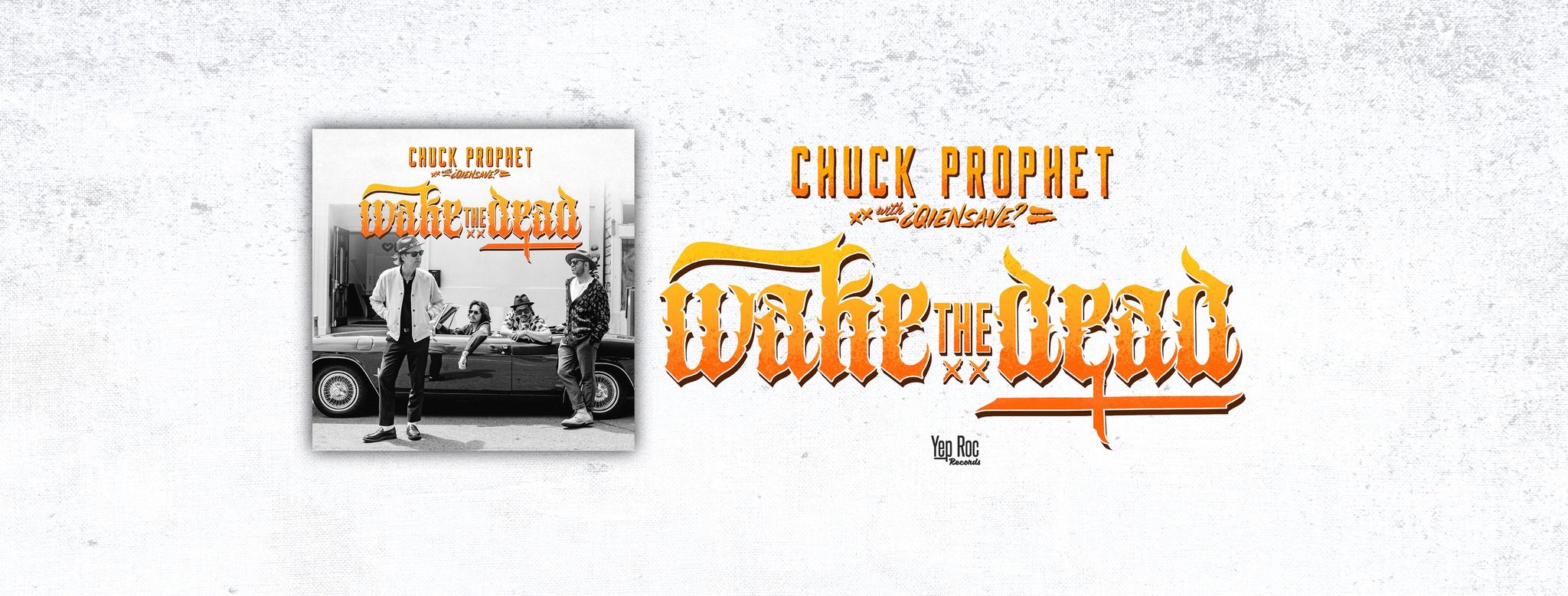

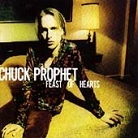



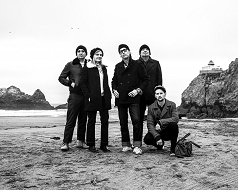
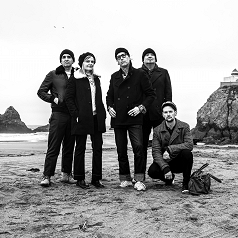
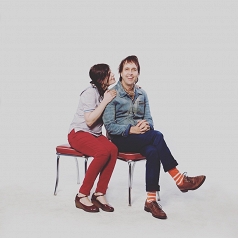
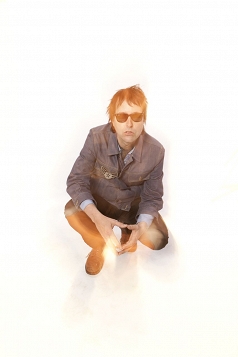

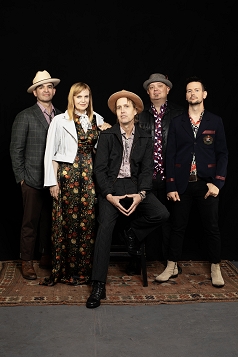
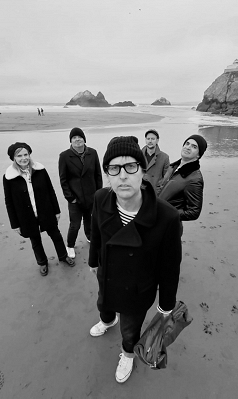
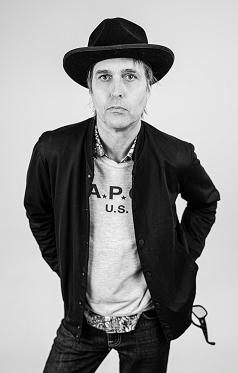
3_238_159auto_s_c1.jpeg)
